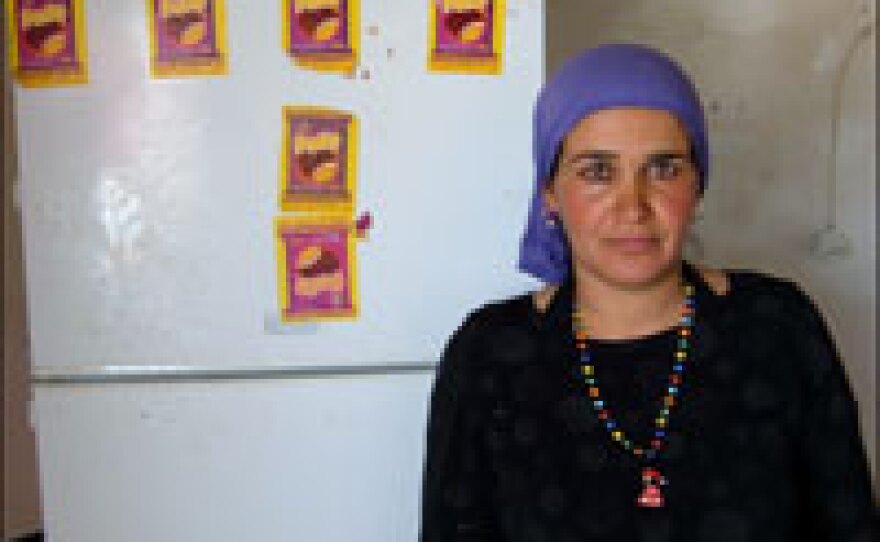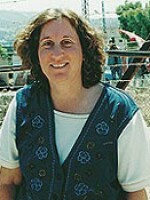
In Israel, tens of thousands of Arab Bedouin live in what are called "unrecognized villages" that don't appear on any maps and don't get basic public services such as electricity and running water.
They are locked in a land-rights struggle with the government. Many of the country's estimated 160,000 Bedouin, who are Israeli citizens, fear the government wants to seize land they say belongs to them put an end to their traditional nomadic lifestyle. Israeli officials, however, say the majority of the Bedouin are squatters.
The village of Um Batin, deep in Israel's Negev desert, houses about 3,000 Bedouin, who live in tents or ramshackle houses. The children who live there are bused to school — the result of a ruling by Israel's supreme court several years ago — but the settlement receives no public amenities.
Suleiman Abu Abayed, a member of the local council of unrecognized villages, says Israel has designated Um Batin to become a recognized village, meaning it would receive government services. But to achieve that status, he says residents would have to give up all claims to land they say is theirs.
Many Bedouin worry that their traditional pasture lands will be taken for development projects and their livelihoods will be wiped out.
Israeli officials say most of the Bedouin are living on land that belongs to the state, and that almost all the houses in Um Batin and dozens of other villages were built illegally. About 22,000 Bedouin homes have been marked for demolition.
In 2005, the government unveiled a $3.6 billion plan to develop the Negev desert and bring 200,000 more Israeli Jews to the area to ease housing pressures elsewhere.
Abu Abayed says Israel wants to move the Bedouin into designated areas. This was first attempted in the 1980s and '90s, when Bedouin were moved into newly built towns. But there were no jobs there, and the settlements are now among the country's poorest.
An Israeli-appointed government commission is trying to find a comprehensive solution to the Bedouin land problems. The panel is scheduled to issue its first report in July, according to spokesman Yehuda Bahar. He notes that Bedouin have been included in the commission and that many have already testified.
But he says the Bedouin way of life may be outdated.
"The Bedouin must integrate," Bahar says. "If they will wait on the side, sitting in their tents, and won't participate in the process of modernization, in a few years they'll be left out of everything."
As the commission searches for a resolution, an environmental justice organization known as Bustan is trying to help the Bedouin right now.
The group, which advocates for the rights of desert peoples, has given some Um Batin residents solar panels to give their homes enough power for a refrigerator.
Wadha Juma says her refrigerator has made a big difference for her 12-year-old son, who has diabetes.
"Now we have electricity a few hours a day to keep the medicines cold," Juma says. "If there was no refrigerator, the medicine would spoil."
Raed al-Makawi of Bustan says the solar panels are not a real solution and that Israeli should provide basic services for Bedouin villages such as Um Batin.
"We began a campaign saying that the government is responsible, and it's the government's duty to provide this kind of service to its own citizens," Makawi says.
Copyright 2022 NPR. To see more, visit https://www.npr.org. 9(MDAzMjM2NDYzMDEyMzc1Njk5NjAxNzY3OQ001))







